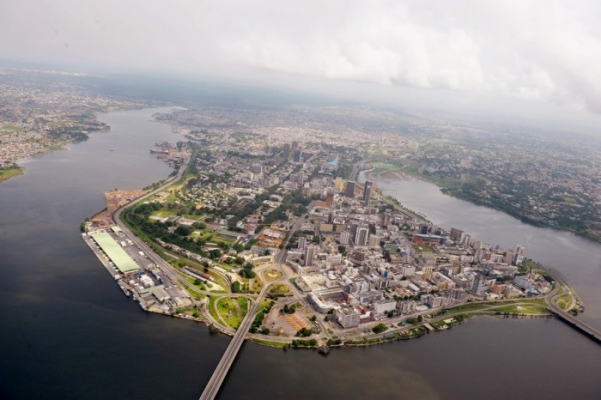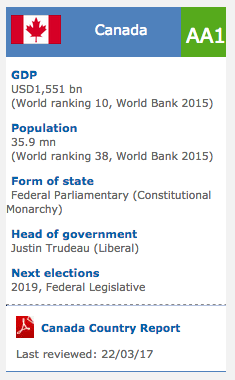Abidjan: Rallying the tourism sector in Côte d'Ivoire
2015/01/09

The government in Cote d'Ivoire is stepping up efforts to attract foreign visitors and investors, with the tourism sector’s contribution to GDP expected to rise this year.
Revenue from tourism and travel is forecast to increase by nearly 9% to CFA345.8bn (€530m) in 2014, nudging its contribution to GDP slightly higher to about 2.5%, according to the World Travel & Tourism Council (WTTC). Revenues will rise over the next decade to reach CFA563bn (€855.8m) in 2024, based on constant prices.
There were 104,000 direct jobs and 211,500 sector jobs in total, accounting for 2.1% and 4.2%, respectively, of national employment. The WTTC is forecasting international 393,000 tourist arrivals in 2014, a rise of 93,000 from last year, according to Côte d'Ivoire Tourisme.
Although the WTTC projections do not take into account the effect of the Ebola outbreak in neighbouring countries – which has had a heavy impact on the volume of inbound visitors to the region, with cruise lines Holland America, Seabourn Cruise and Regent Seven Seas dropping calls to West African ports – there have been no cases in Côte d'Ivoire, which has maintained tight control of its borders.
However, the minister of tourism, Roger Kacou, recognised the situation was difficult. "We follow very closely the evolution of the health situation in the region and have taken early preventive measures, in particular strict control at airports," he said during a visit to Paris in October.
Comprehensive policy
Despite any short-term impact from the crisis, Ivoirian authorities consider tourism a major asset and have taken steps to improve and promote the country’s overall offering as well as the business environment for tourism.
At the start of the year, the Council of Ministers approved three measures aimed at strengthening regulation and improving the quality of service. In addition, Parliament passed a bill in February creating a national Tourism Code, which details the rights and obligations of all stakeholders in the sector, including tour operators and tourists, and aimed at stimulating investment. Another important measure has been to issue visas on arrival at Abidjan International Airport.
The minister of tourism noted earlier in the year that business tourism was growing in Abidjan, but he underlined how the economic capital is facing a deficit of hotels. “Hotel facilities are not only ageing, they’re also in short supply relative to demand in Abidjan and the surrounding areas where accommodation is in need of complete renovation,” he said.
New hotels
Côte d'Ivoire has 1580 hotels with a total of 19,855 rooms, according to the ministry. Since the end of the post-electoral violence three years ago, the country has seen a dramatic increase in hotel activity, particularly in the business segment, the most dynamic portion of the market with a 59.2% share of the total, according to WTTC. Following the reopening of the Hotel Ivoire in 2013, now managed by the French group Accor and renamed Sofitel Abidjan Ivoire, the next major development will be the opening of the 252-room Radisson Blu at Abidjan's Port Bouet Airport in mid-2015.
“When it comes to hotels, most regions of Africa lack internationally branded hotel rooms or offer a rather out-dated portfolio,” said Wolfgang Neumann, president and CEO of the Rezidor Hotel Group, which owns the Radisson Blu brand. “There is an imbalance of supply and demand, which offers considerable development potential for international hotel operators,” he added.
Airline competition
The number of international flights to and from Cote D’Ivoire has risen in the past year as competition increases. The total number of passengers who passed through Félix Houphouët-Boigny International Airport reached 1.18m in 2013, passing the 1m-mark for the first time since 1999. Last year’s increase was a 23% rise over 2012 figures as well, according to the airport.
This bodes well for the government’s move to open an airline. In 2012, it partnered with Air France-KLM Royal Dutch Airlines and private investors to found Air Côte d'Ivoire (ACI).
The rising demand ACI is looking to cater for has also brought the attention of other carriers. Air France, a 20% stakeholder in ACI, has increased the number of flights there to 10 a week, from seven per week last summer. The French airline also unveiled in April its plans to start a regular A380 service to the Cote D’Ivoire capital during the winter season starting October 26. This is the only city after Johannesburg in Africa, which will be served by the superjumbo.
Increased competition has also come from carriers such as Turkish Airlines and Dubai’s Emirates. At the end of June, the Turkish flagship carrier started four-times-weekly triangular flights to Abidjan and Cotonou in Benin from Istanbul.
Le gouvernement ivoirien intensifie ses efforts afin d’attirer les visiteurs et investisseurs étrangers et on attend une hausse de la contribution du secteur du tourisme au PIB dès cette année.
Selon les prévisions, les recettes générées par le tourisme et le voyage devraient croître de 9% pour atteindre 345,8 milliards de francs CFA (530 millions d’euros) en 2014, rehaussant leur contribution au PIB à environ 2,5% selon les chiffres publiés par le World Travel & Tourism Council (Conseil Mondial du Tourisme et du Voyage, WTTC). Les recettes devraient poursuivre leur tendance haussière au cours des dix prochaines années et atteindre 563 milliards de francs CFA (855,8 millions d’euros), en valeur réelle.
Le secteur emploie au total 211 500 personnes, dont 104 000 emplois directs, soit respectivement 4,2% et 2,1% de l’emploi national. Le WTTC prévoit 393 000 arrivées de touristes internationaux en 2014, une hausse de 93 000 par rapport à l’an dernier, selon Côte d’Ivoire Tourisme.
Si les projections du WTTC ne prennent pas en compte les conséquences de l’épidémie d’Ebola qui sévit dans les pays voisins – et qui a eu un impact très lourd sur le volume des arrivées de visiteurs dans la région, avec notamment l’annulation par des compagnies de croisières telles que Holland America, Seabourn Cruise et Regent Seven Seas de leurs escales dans les ports ouest-africains – on ne recense pas de cas d’Ebola en Côte d’Ivoire, le pays ayant déployé des mesures de contrôle strictes à ses frontières.
Le Ministre du Tourisme, Roger Kacou, a toutefois reconnu que la situation était difficile. « Nous sommes très attentifs à la météo sanitaire régionale et nous avons pris très rapidement des mesures préventives : (…) des mesures très strictes ont été prises dans les aéroports du pays pour contrôler les passagers, » a-t-il déclaré durant une visite à Paris au mois d’octobre.
Une politique de grande envergure
Malgré l’impact de la crise sur le court terme, le tourisme constitue pour les autorités ivoiriennes un atout majeur et ces derniers ont pris des mesures en vue d’améliorer et de promouvoir l’offre touristique générale du pays ainsi que l’environnement des affaires dans le secteur.
En début d’année, le Conseil des Ministres a approuvé trois mesures destinées à renforcer la réglementation et à améliorer la qualité des services. En outre, le Parlement a adopté en février un projet de loi portant sur la création d’un Code du Tourisme national, qui expose en détail les droits et obligations des parties prenantes du secteur, notamment les voyagistes et les touristes, et vise à stimuler l’investissement. Une autre mesure de taille concerne la délivrance de visas à l’Aéroport International d’Abidjan.
Un peu plus tôt dans l’année, le Ministre du Tourisme a constaté que le tourisme d’affaires était en augmentation à Abidjan, soulignant toutefois les difficultés rencontrées par la capitale économique du pays en raison d’un déficit d’hôtels. « Le parc hôtelier est non seulement vieillissant mais surtout les hôtels sont en nombre insuffisant par rapport à la demande à Abidjan et à l’intérieur du pays où les réceptifs ont besoin d’une rénovation totale, » a-t-il déclaré.
Nouveaux hôtels
Selon les chiffres du Ministère, la Côte d’Ivoire dispose de 1580 hôtels avec au total 19 855 chambres. Depuis la fin des violences post-électorales il y a trois ans, le pays a connu une hausse considérable de son activité hôtelière, en particulier dans la branche affaires qui se taille 59,2% du marché et en est le segment le plus dynamique, selon le WTTC. Après la réouverture de l’Hôtel Ivoire en 2013, désormais sous la gestion du groupe français Accor et rebaptisé Sofitel Abidjan Ivoire, le prochain grand projet hôtelier sera le Radisson Blu à l’Aéroport International Félix Houphouët-Boigny d’Abidjan : doté de 252 chambres, son ouverture est prévue pour mi-2015.
« En matière d’hôtels, la plupart des régions africaines manquent d’une offre de chambres d’hôtel sous enseigne internationale ou disposent d’un portefeuille d’hôtels devenu relativement obsolète, » a déclaré Wolfgang Neumann, PDG du groupe hôtelier Rezidor, auquel appartient la marque Radisson Blu. « Il existe un déséquilibre entre l’offre et la demande, ce qui représente un potentiel de développement considérable pour les groupes hôteliers internationaux, » a-t-il ajouté.
Concurrence dans les airs
Le nombre de vols internationaux au départ et à destination de la Côte d’Ivoire a grimpé au cours de l’année qui s’est écoulée, à mesure que la concurrence s’intensifie. Le trafic total de l’aéroport international Félix Houphouët-Boigny a atteint 1,18 millions de passagers en 2013, passant la barre des 1 million pour la première fois depuis 1999. L’augmentation de l’an dernier a constitué une hausse de 23% par rapport aux chiffres de 2012, d’après les autorités aéroportuaires.
Une évolution qui est prometteuse pour le projet de création de compagnie aérienne nationale. En 2012, l’Etat ivoirien s’est associé à Air France – KLM Royal Dutch Airlines ainsi qu’à des investisseurs privés pour fonder Air Côte d’Ivoire (ACI).
La demande croissante dont ACI espère bien profiter a également attiré l’attention d’autres transporteurs. Air France, qui détient une participation de 20% de ACI, a fait passer son nombre de vols à 10 par semaine, contre sept par semaine l’été dernier. La compagnie aérienne française a également dévoilé, au mois d’avril, son intention de démarrer un service commercial régulier de l’Airbus A380 vers la capitale ivoirienne pendant l’hiver, à compter du 26 octobre. Mis à part Johannesburg, il s’agit là de l’unique ville d’Afrique à être desservie par le « Super Jumbo ».
La concurrence est également le fait de transporteurs tels que Turkish Airlines et Emirates, la compagnie aérienne de Dubaï. Fin juin, le transporteur national turc a démarré une liaison triangulaire au départ d’Istanbul et à destination d’Abidjan et de Cotonou, à raison de 4 fois par semaine.
- Related Articles

Africa's Relationship With China Is Ancient History
2017/07/02 In 2002 South Africa's Parliament unveiled a digital reproduction of a map - of China, the Middle East and Africa - that some speculated could be the initial map of the African continent. The Da Ming Hun Yi Tu - the Comprehensive Map of the Great Ming Empire - was drawn up around 1389 during the Ming Dynasty, according to historian Hyunhee Park.
Africa: Making Things Happen at the Bank - 'Not a Talk Shop' - Akin Adesina
2017/07/02 Dr. Akinwumi Adesina is focusing on five areas to achieve the African and world goals for a prosperous continent since becoming president of the African Development Bank - Africa's major public financial institution in September 2015. He was a keynote speaker at this month's Corporate Council on Africa's U.S.- Africa Business Summit in Washington D.C. and moderated a lively panel with five African government ministers. He as well received the Gene White Lifetime Succcess Award from the World Child Nutrition Foundation. This week, he was named the 2017 recipient of the World Food Prize, a prestigious honor that includes a $250,000 award. In an interview in Washington, DC, Adesina discussed the Development Bank's ambitious schedule and his vision for attracting the increase capital Africa needs. Posting questions for AllAfrica was Noluthando Crockett-Ntonga.
Côte d'Ivoire Economic Overview Political Overview
2017/05/14 Côte d'Ivoire Global leader in cocoa production
Climate change laws around the world
2017/05/14 There has been a 20-fold increase in the number of global climate change laws since 1997, according to the most comprehensive database of relevant policy and legislation. The database, produced by the Grantham Research Institute on Climate Change and the Environment and the Sabin Center on Climate Change Law, includes more than 1,200 relevant policies across 164 countries, which account for 95% of global greenhouse gas emissions.
Hervé Boyer, Director General, Stanbic Bank Côte d’Ivoire, on the potential for improved banking penetration
2016/12/25 What are Côte d’Ivoire’s comparative advantages as a banking market? HERVÉ BOYER: Although there are certainly challenges that need to be addressed – particularly in terms of competition and concentration – Côte d’Ivoire offers one of the majority sophisticated financial sectors in the region and enjoys a number of benefits that some of the larger economies in West Africa do not.
- Abidjan News
-
- AFGHANISTAN: UNWTO: International tourism – strongest half-year results since 2010
- BOTSWANA: Why governments need to support the financial sector to meet the unserved needs of smallholder farmers
- BOTSWANA: International Arrivals To Africa Reach More Than 18 Million In 2017
- BOTSWANA: Africa: USA-Africa - No Policy? Bad Policy? or Both?
- BOTSWANA: Africa: U.S. State Department To Get Experienced Diplomat in Key Africa Post
- BOTSWANA: Africa’s economic growth in 2016 was driven by East Africa
- Trending Articles
-
- SOUTH AFRICA: Nigeria and South Africa emerge from recession
- BAHRAIN: Bahrain issues new rules to encourage fintech growth
- UZBEKISTAN: Former deputy PM named Uzbekistan Airways head
- ARUBA: Director of Tourism Turks and Caicos after Irma: Tourism, visitors, hotels current status
- ANGOLA: Angola: Elections / 2017 - Provisional Data Point Out Qualified Majority for MPLA
- WORLD: How fair is our food? Big companies take reins on sourcing schemes




.gif?1356023993)






